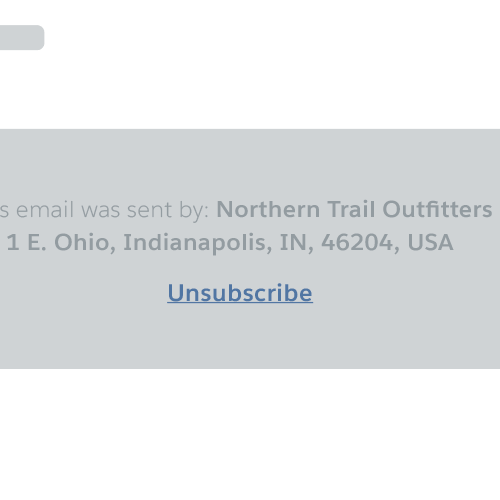
Table of Contents
What is CAN-SPAM Salesforce?
The CAN-SPAM Act imposes stricter requirements on Commercial email than on Transactional email. Complying with these requirements protects you from CAN-SPAM litigation and demonstrates your commitment to providing relevant customer messaging.
CAN-SPAM transactional?
The CAN-SPAM Act prohibits the transmission of a commercial e-mail message or a transactional or relationship message that contains materially false or misleading header information. This is the only requirement that applies to both commercial and transactional or relationship messages.
CAN-SPAM Requirements?
Congress passed the CAN-SPAM Act to address the problem of unwanted commercial electronic mail messages. The CAN-SPAM Act requires the Federal Communications Commission to issue rules with regard to commercial e-mail and some text messages sent to wireless devices such as cell phones—not email in general.
Which two criteria should be met to ensure compliance with the CAN-SPAM Act?
The CAN-SPAM act requires that Commercial emails, whose primary purpose is to deliver commercial content, meet the following criteria: Accurately identify the sender in the header information. Use a subject line that accurately represents the content of the email.
Does CAN-SPAM apply to B2B?
The CAN-SPAM Act applies to B2B advertisements, just as it does to B2C. The impact will be that business recipients must be afforded the opportunity to remove themselves from marketing lists (opt out) just as consumers.
What is a CAN-SPAM violation?
The CAN-SPAM Act, a law that sets the rules for commercial email, establishes requirements for commercial messages, gives recipients the right to have you stop emailing them, and spells out tough penalties for violations. Despite its name, the CAN-SPAM Act doesn’t apply just to bulk email.
CAN-SPAM Act 10 days?
This longer time frame may irk some consumers, but as long as the person who opted-out is removed from your list within 10 business days, you are compliant with the CAN-SPAM Act. Once the consumer’s email is removed from the list, you are not permitted to use it, transfer it or sell it from that moment forward.
CAN-SPAM Rules 2021?
Here are the requirements posed by the CAN-SPAM Act: Senders must not email recipients who have previously opted out of their communication. Senders must honor and remove opt-outs from their email list within 10 business days.
CAN-SPAM vs CASL?
[4] Unlike CASL which applies to “commercial electronic messages” (or “CEMs”), which are defined as “any means of telecommunication, including a text, sound, voice or image message,” CAN-SPAM applies to “commercial electronic mail messages,” i.e., email only.
Does CAN-SPAM apply to push notifications?
CAN-SPAM was signed at a time when SMS messages and push notifications were not in the public dialog. SMS falls under a peculiar category. The FTC is allowed to make rules on SMS advertising through CAN-SPAM.
Does CAN-SPAM apply to texts?
The CAN-SPAM Act takes a different route but has essentially the same purpose. The CAN-SPAM Act prohibits commercial text messages from being sent to your cell phone. Commercial texts show up on your cell phone as text messages and advertise or promote a product or service for sale.
CAN-SPAM Act reporting?
Finally, if you believe that a company is still sending you unwanted e-mails after you’ve notified them in writing to stop, you can file a complaint with the FTC by going to FTCComplaintAssistant.gov, and contact the Attorney General’s office in your state to learn about local anti-spam laws and your rights.